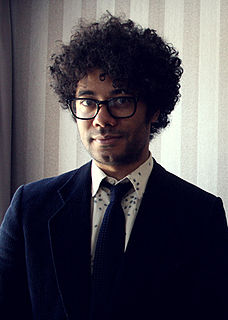A Quote by Thomas Roma
The question is not whether a picture is good, in some formal, technical sense, but, does it mean what I need it to mean? Writers can edit sentences that may be well-crafted but that don't express an intended thought. But in photography, there are no revisions: A photograph is in or it's out, and the photographer must live with the consequences of his or her choices.
Related Quotes
The incipient magician will confess his faith to a universal religion. He will find out that every religion has good points as well as bad ones. He will therefore keep the best of it for himself and ignore the weak points, which does not necessarily mean that he must profess a religion, but he shall express awe to each for of worship, for each religion has its proper principle of God, whether the point in question be Christianity, Buddhism, Islam or any other kind of religion.
A photographer who does not know how to translate his feelings and ideas into a graphically satisfactory form is bound to produce ineffective photographs, no matter how idealistic, compassionate, sensitive or imaginative he may be. For in order to be considered good, a photograph must not only say something worthwhile, it must say it well.
Detachment, lack of sentimentality, originality, a lot of things that sound rather empty. I know what they mean. Let's say, "visual impact" may not mean much to anybody. I could point it out though. I mean it's a quality that something has or does not have. Coherence. Well, some things are weak, some things are strong.
A photograph records both the thing in front of the camera and the conditions of its making... A photograph is also a document of the state of mind of the photographer. And if you were to extend the idea of the set-up photograph beyond just physically setting up the picture, I would argue that the photographer wills the picture into being.
To know whether photography is or is not an art matters little. What is important is to distinguish between good and bad photography. By good is meant that photography which accepts all the limitations inherent in photographic technique and takes advantage of the possibilities and characteristics the medium offers. By bad photography is mean that which is done, one may say, with a kind of inferiority complex, with no appreciation of what photography itself offers: but on the contrary, recurring to all sorts of imitations.
I believe that the most urgent need of parents today is to instill in our children a moral vision: what does it mean to be a good person, an excellent neighbor, a compassionate heart? What does it mean to say that God exits, that He loves us and He cares for us? What does it mean to love and forgive each other? Parents and caregivers of children must play a primary role in returning our society to a healthy sense of the sacred. We must commit to feeding our children’s souls in the same way we commit to feeding their bodies.
In this life we have to make many choices. Some are very important choices. Some are not. Many of our choices are between good and evil. The choices we make, however, determine to a large extent our happiness or our unhappiness, because we have to live with the consequences of our choices. Making perfect choices all of the time is not possible. It just doesn't happen. But it is possible to make good choices we can live with and grow from.
If you look at a photograph, and you think, 'My isn't that a beautiful photograph,' and you go on to the next one, or 'Isn't that nice light?' so what? I mean what does it do to you or what's the real value in the long run? What do you walk away from it with? I mean, I'd much rather show you a photograph that makes demands on you, that you might become involved in on your own terms or be perplexed by.
"Though many painters and sculptors talk glibly of "going in for photography," you will find that very few of them can ever make a picture by photography; they lack the science, technical knowledge, and above all the practice. Most people think they can play tennis, shoot, write novels, and photograph as well as any other person - until they try."
Once I reached my 40s, I thought to myself that if I'm going to play live now, I need to really mean this. I can't go out and be a little bit, for one moment slovenly in my choices as a performer. I mean, these people have paid a lot of money to be here, they've been through the nightmare of getting here, starving themselves waiting for us to get on stage, so I'm going to give them what they came here for.
With a live performance, you feel nervous because there's a sense it could do well or badly based on how well you are performing, whereas the only variable with a film premiere is technical, which invariably you have very little control over, whether the sound is good, whether the acoustics of the room are good.
What does it mean when a man falls in love with a radiant face across the room? It may mean that he has some soul work to do. His soul is the issue. Instead of pursuing the woman and trying to get her alone, away from her husband, he needs to go alone himself, perhaps to a mountain cabin, for three months, write poetry, canoe down a river, and dream. That would save some women a lot of trouble.
































